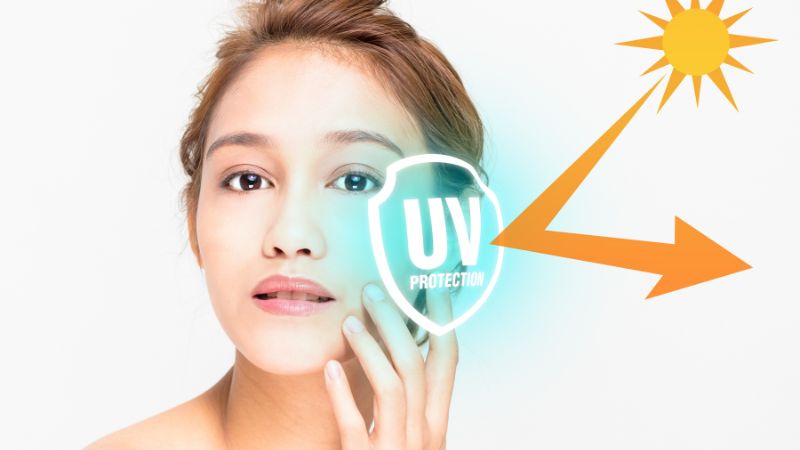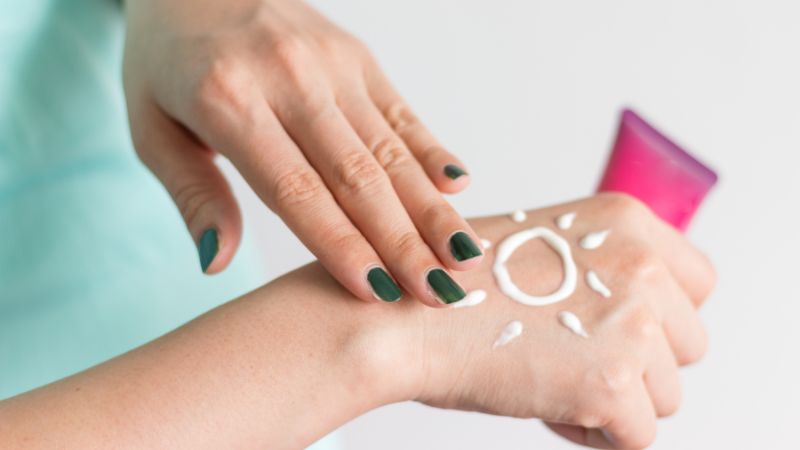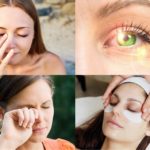1. Why should you use sunscreen?
 Why should you use sunscreen?
Why should you use sunscreen?
Applying sunscreen is an important part of daily skincare. Here are some reasons why you should use sunscreen:
- Protects the skin from UV rays: Sunscreen helps protect the skin from the harmful effects of UVB and UVA rays from sunlight.
- Prevents sunburn: Sunburn can cause redness, swelling, and skin damage. Regular and proper application of sunscreen helps reduce the risk of sunburn and related skin issues.
- Prevents skin aging: Using sunscreen helps minimize the impact of UV rays on the skin, keeping it healthy and reducing the risk of aging signs such as wrinkles and dark spots.
- Reduces the risk of skin cancer: UV rays can damage skin cells and create favorable conditions for the development of cancer cells. Protecting the skin from UV rays is an important way to reduce this risk.
2. How many types of sunscreen are there?
 How many types of sunscreen are there?
How many types of sunscreen are there?
There are different types of sunscreen available on the market, but they can mainly be classified based on the following two factors:
Based on protection ingredients:
- Physical sunscreen: Contains ingredients like titanium dioxide and zinc oxide, creating a protective barrier on the skin to reflect and absorb UV rays.
- Chemical sunscreen: Contains chemical compounds such as oxybenzone, octinoxate, avobenzone, or homosalate, which penetrate the skin and absorb UV rays before they can harm the skin.
Based on sun protection factor (SPF):
- Low SPF sunscreen (SPF 15-30): Provides basic protection against UVB rays.
- High SPF sunscreen (SPF 30 and above): Provides a higher level of protection against UVB rays.
- Broad-spectrum sunscreen: Protects against both UVB and UVA rays. The SPF rating does not assess the level of UVA protection, so choosing a broad-spectrum sunscreen ensures more comprehensive protection.
3. How long does sunscreen last? How often should you reapply?
 How long does sunscreen last? How often should you reapply?
How long does sunscreen last? How often should you reapply?
The effectiveness of sunscreen typically lasts for a short period of time, so it is necessary to reapply sunscreen to maintain its effectiveness. The duration of effectiveness and reapplication time depend on factors such as the sun protection factor (SPF), your activities, and environmental conditions. Here is a general guideline:
Initial effectiveness:
- Sunscreen usually provides immediate protection upon application. This allows you to safely go outside and expose yourself to sunlight right away.
- However, to achieve maximum effectiveness, you should wait at least 15-30 minutes for the sunscreen to fully absorb into the skin before sun exposure.
Reapplication time:
- You should reapply sunscreen after about 2 hours or after swimming or excessive sweating. Additionally, if you are engaging in outdoor activities with intense sun exposure, such as swimming, exercising, or playing sports, you should reapply sunscreen more frequently, about every 1-2 hours.
4. Standard process for applying sunscreen
 Standard process for applying sunscreen
Standard process for applying sunscreen
Choose a sunscreen that is suitable for your skin type, protection needs, and activities. Make sure the sunscreen has a suitable SPF and provides protection against UVA and UVB rays.
Cleanse your face and the areas where you will apply sunscreen to remove dirt and excess oil. Apply other skincare products (such as moisturizer, serum, or acne treatment) in the appropriate order before applying sunscreen.
Take a nickel-sized amount of sunscreen to ensure adequate coverage for the areas you want to protect.
Dot and spread the sunscreen evenly on the areas you want to protect, including your face, neck, etc.
Use your fingers or the palm of your hand to gently massage and spread the sunscreen onto your skin. Make sure the sunscreen is evenly absorbed and no unprotected areas are left.
To protect your skin effectively, use sunscreen daily, even when the weather is cloudy or you are not directly exposed to sunlight. Apply sunscreen about 15-30 minutes before leaving the house to allow the sunscreen to fully absorb into the skin.
We hope this article on the duration of sunscreen’s effectiveness and reapplication time helps you in choosing how to take care of your skin and selecting the appropriate products!



































